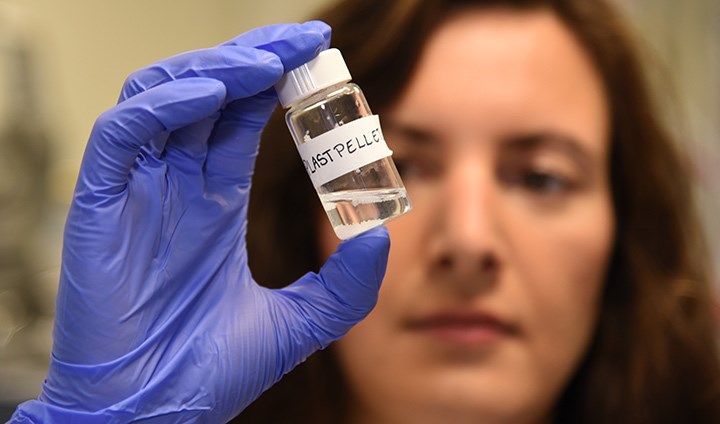Vice-Chancellor’s blog: The university and the future

A former chair of the Nobel Foundation once encapsulated a university’s three main tasks in society as being its memory, its cutting edge, and its critical mirror. I’d like to add a fourth. A university should also be a searchlight, pointing into and scanning the future – as elusive as it may be.
But, gazing into the future is of no use to society unless universities and their researchers can interpret the projections made, which more often than not are both blurred and volatile. What’s more, forecasts tend to slowly transform over time – sometimes reaching a “tipping point” when everything changes.
It is essential that the broader non-scientific community takes an interest in these forecasts and future scenarios. Saying that “we didn’t see that coming” simply isn’t good enough. Policymakers, the media, public authorities and universities are particular key players here – but ultimately, it’s all of our responsibility.
In 1896, Swedish chemist Svante Arrhenius concluded that the use of coal catalysed by industrialisation would increase the earth’s natural greenhouse effect. In 1958, atmospheric carbon dioxide concentration was recorded for the first time on Hawaii. Four years later, a significant increase was already observed from 315 parts per million (ppm). Today, levels are in excess of 400 ppm. Global warming is a result of human activity and will sadly continue.
This development can be attributed to rapid global population growth, a lack of political will in large parts of the world, and to inadequate alternatives to fossil fuels. It’s also notable that a limitation of population growth isn’t expressed more explicitly in the UN’s global sustainability goals – or that the issue isn’t higher up on the agenda even in a Swedish academic context. However, even without political and religious aspects, one can sense a certain divergence of perspectives on the issue between natural, medical and social scientists.
As early as 1912, a New York physician wrote one of the first reports on the correlation between smoking and lung cancer. In 1964, a large longitudinal study on the health of British medical doctors, “The British Doctors Study”, established a convincing linkage between the two. Tobacco industry lobbyists then attempted to play down the findings and steer the public debate in various ways. In the late 1970s, and this I have on good authority, many doctors at the hospital in Örebro smoked during pre-round meetings, even when cases of lung cancer were discussed. All secondary schools had a designated outdoor smoking area. Although we’re much wiser now, smoking still causes far too many deaths.
Örebro University is host to prominent research on chemicals and microplastic particles in water. Dutch scientists have now found such microplastic particles even in human blood. What the effects on human health will be in the future is unknown, but they will most likely be anything but positive.
Research that functions as a searchlight to predict future social, economic and political changes is the most challenging research undertaking. Developments in Sweden clearly show the need for bold social science research that can provide knowledge and enable us to build a socially sustainable society.
Our investments into a university-wide Platform for a Sustainable Future at Örebro University () promote multidisciplinary studies of immensely complex sustainability issues. Were this initiative to generate on-point scenarios that could provide a knowledge base for the media and decision-makers at various levels, it would be a great pay-off.
As I’m writing these lines, Sweden is celebrating its national day in peace and freedom. In Ukraine, people have been fighting Russian aggression for more than 100 days – for the right to live in peace and enjoy full democratic rights. In less than 100 days, the democracy that is Sweden will hold elections. As citizens, we may – as is our right to – question the puzzling games played by our politicians at times. Yet, despite all its imperfections, democracy is still the form of government that best enables accountability and secures civil rights.
The fight in Ukraine will, by all accounts, continue for a long time. It’s crucial that Sweden and our democratic allies persevere in our support of Ukraine. The university has a special responsibility to support Ukrainian academia. It’s encouraging to learn that several of our colleagues have now been awarded grants enabling Ukrainian academics to conduct their research with us. We should prepare ourselves that the provision of this support will be required for a long time yet.
Johan Schnürer
Vice-Chancellor
